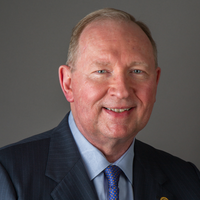Rule of Law
The Great American Experiment
Human society and its governance has been a great experiment over the centuries. I learned in Basic Philosophy the tenants of Plato who asserted the best form of governance is the monocratic rule of a philosopher king, i.e., one who is wise and all powerful and the product of his rule would be a stable, prosperous, peaceful and orderly society. Ironically, the title of his treatise on the subject was entitled “The Republic”. I am not exaggerating when I submit that human history may be defined in terms of the trial, success and failure of various forms of governance. Some would argue that the forms which achieved ascendance were wholly appropriate for their times and conditions. Perhaps this is so, but one must ask what is the current status of our American form of governance known as Rule of Law.
I imagine this will be the first in a series of Reflections which will give my tilt on the topic but be accurate and thought provoking. You will know when it is my opinion and when it is commonly accepted truth.
So let’s begin the conversation with the definition of Rule of Law. Wikipedia stated it is the legal principle that the law should govern a nation, as opposed to being governed by decisions of individual government officials. It primarily refers to the influence and authority of law within society, particularly as a constraint upon behavior, including behavior of government officials. In other words, no one is above the law. It also begs the question, what law are we referring to: The Constitution, The Ten Commandments, Cannon Law, Sharia Law and so on. Confusion abounds when the concept of “common law” (unwritten law) enters the discussion as opposed to written or formal laws. For a Rule of Law to work, must there not be education, enforcement, interpretation and public acceptance? We must also ask, how laws are to be made and by whom and how and if they can be changed. You see, this is not an easy topic to explore. At the outset, let us delineate the difference between Rule of Law and Rule by Law. Under of system of Rule by Law, the king, dictator, oligarch or aristocrat was not necessarily subject to the law. The law was a useful tool for governance. One could not say the king was subject to the law, rather he was the enforcer of the law as he saw it. The concept of the Rule of Law as it has evolved into the American Constitutional System is that there is a separation of incompatible powers: a bi-cameral agency which creates and oversees the laws, an executive who enforces and administers those laws and a court system which clarifies and interprets the law in particular and general applications and circumstances. (We often complain about “legislating from the bench”, “congressional overreach”, and “overuse of executive orders and regulation by unelected administrators”. These complaints arise from adherence to the principle of Rule of Law.) We find that our Great Experiment in governance is currently being tested in ways not previously contemplated. And, this is serious business. In America, a Great Civil War was fought over the rights of States and the differing economic systems and “set of laws”.
To lay the groundwork, the next Reflection will deal with the thinking of the early Western philosophers and exampled of timely experiments which have long since been discredited, or have they?


Huh?